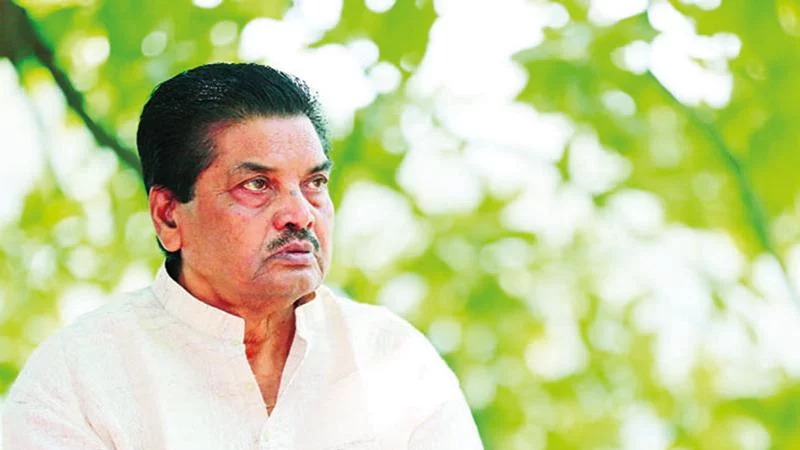Amjad Hossain is remembered as one of the greatest directors in the history of Bengali cinema. This poet of films created timeless works such as ‘Golapi Ekhon Train E’ and ‘Bhat De’.
Filmmaker, storyteller, dialogue writer, lyricist, actor, playwright, rhymer, organiser, columnist and orator — he wore many hats with equal brilliance.
Born on August 14, 1942, in Jamalpur, Amjad Hossain passed away on December 14, 2018, in Bangkok. His creative journey began with poetry, with his verses published in Kolkata’s Desh newspaper.
Inspired by the ideals of Maulana Bhashani, he embraced political consciousness. After moving to Dhaka, he became involved in theatre, performing on stage and in films, while also contributing to children’s and adolescent literature and television dramas.
His dialogue “Taka de, Dubai jabo” (Give me money, I’ll go to Dubai) from the popular BTV drama ‘Jabbar Ali’ became a catchphrase for audiences of the time.
Amjad’s film career began in 1961 with acting roles in ‘Tomar Amar’ and ‘Harano Din’. He later worked with Zahir Raihan as a dialogue writer and actor in notable films including ‘Behula’, ‘Anowara’ and ‘Jibon Theke Neya’.
His directorial ventures included ‘Julekha’, ‘Agun Ni Khela’, ‘Dui Bhai’, ‘Ballyobondhu’, ‘Shongshar’ and ‘Pitaputra’.
Following Bangladesh’s independence, he produced some of the nation’s most enduring films — ‘Banglar Mukh’ (1972), ‘Nayanmoni’ (1976), ‘Golapi Ekhon Train E’ (1978), ‘Sundari’ (1979), ‘Kasai’ (1980) and ‘Jonmo Theke Jolchi’ (1981).
Golapi Ekhon Train E swept ten National Film Awards, while Bhat De bagged nine. In these works, he often served as storyteller, dialogue writer, lyricist, director and producer.
Amjad’s films portrayed rural society and the struggles of the lower classes with striking realism. His dialogues and songs carried deep emotion and human values — the dialogue from Bhat De, “Ami bhat churi kori na to, khida lagle khai” (“I do not steal rice, I eat when I’m hungry”), remains unforgettable.
His songs such as ‘Emon O To Prem Hoy’, ‘Jonmo Theke jolchi Ma Go’ and ‘Hayre Kopal Mondo’ remain popular to this day.
Both a protester and a humanist, he infused Nayanmoni, Golapi Ekhon Trene and Bhat De with characters that reflected people’s sorrow, resistance and hope. His Marxist outlook influenced his screenplays and characterisation. His novel ‘Joyjatra’, and the Liberation War film adapted from it, stand as proof of his patriotic commitment.
Amjad was also deeply interested in political history, writing about Netaji Subhas Chandra Bose, Maulana Bhashani and Shaheed Asad, and even planning films on such subjects. His columns often addressed the struggles of farmers, workers and student movements.
Over his career, he received multiple National Film Awards and Bangladesh Cholochitra Sangbadik Samity (BACHSAS) Awards, as well as numerous honours including the Ekushey Padak (1993), the Bangla Academy Literary Award (2004), the Agrani Shishu Literary Award and the Fazlul Haque Smriti Award.


